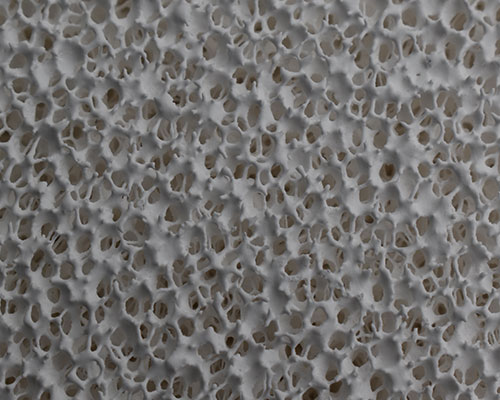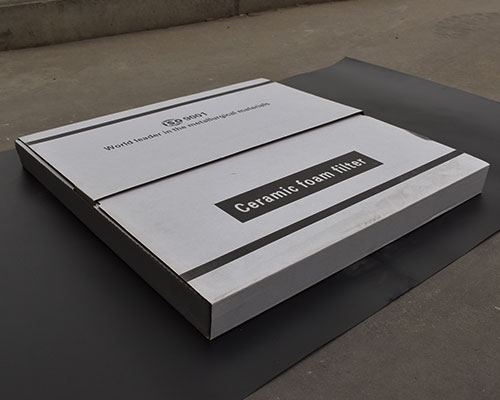Aluminum Foundry Ceramic Filters are generally accepted as the best ceramic filters for casting based on cost, ease of use, and acceptable performance characteristics. Their main advantages are high filtration efficiency, turbulence reduction, refractoriness, and erosion resistance, for the most demanding casting applications. Deep bed particle filters have generally better filtration performance, but are more difficult and costly to operate.
The aluminum foundry ceramic filters are brittle and fragile, so the grains of the foam filter is easily broken off. Sample specimens obtained from the filters are therefore irregularly shaped, as well as porous. The structure of the CFF creates a unique, tortuous path for the fluid to flow, which captures inclusions and allows clean, smooth-flowing metal to exit into the mold cavity.
Molten metal usually contains solids, such as metal oxides and other impurities, which may cause the final cast product to have undesirable characteristics. aluminum foundry ceramic foam filters have been designed to remove these impurities from the molten metal during the casting process. Typically, these filters are made of refractory materials to withstand the high temperatures associated with molten metal.

The preferred fire-resistant filter has a foam-like appearance and is referred to as a foam filter in the metal filtration industry. These are usually ceramic foam filters. The ceramic foam filter has a stranding network composed of a plurality of interconnected open cells. Because the flow path through this filter is tortuous, the filtration efficiency is much higher than that of the honeycomb filter.
The important filter parameters are effective porosity (i.e., the porosity that effectively contributes to the fluid flow), tortuosity, specific surface area, and pore diameter. The filtration process is also dependent on the alloy type, grain refiner, casting rate, metal temperature, etc. Grain refiner added before the filters have a particularly negative impact on filtration efficiency.

